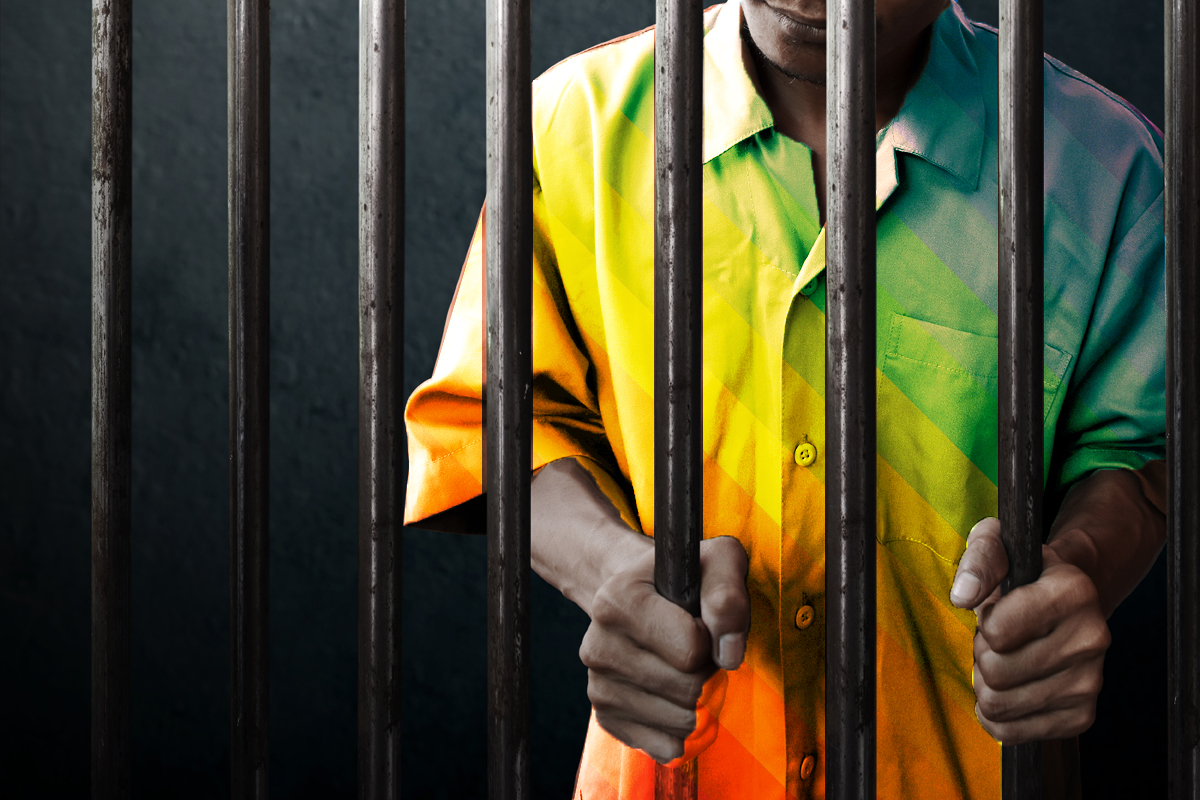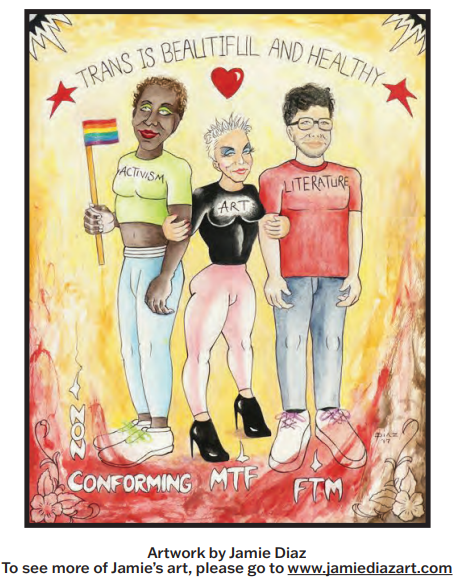

Audio By Carbonatix
Throughout my life, I have been told I am “the problem” because of my sexual identity. In high school, I had teachers and principals tell me, “If you didn’t act so feminine, you wouldn’t get bullied as much.” The thugs beating on me weren’t the problem, I was. Those statements did not change upon my coming to prison, where I relive that prejudice every day in the form of abusive comments made by correctional officials and other facility residents.
Coming to prison, I tried my hardest to stay in the closet. In the county jail, I was warned not to let others know about my sexual orientation and gender identity. I heard horror stories of the abuse and violence my peers in the LGBTQ community suffered at the hands of officers and incarcerated bullies. But my mannerisms could not be hidden; I had a target on my back. The verbal attacks and sexual harassment started immediately. This type of abuse was nothing new to me, but the urgency and intensity of the anger directed at me by a few guards and other prisoners was startling. I could not run and hide in this small community, so I did what I knew best: I kept my head low and dealt with the abuse while simmering in silent anger.
I believe the problem lies in a prison system that supports and fosters homophobia. Prison leadership is working against this legacy of hatred and disrespect, as do many of the staff, so I want to be clear: the homophobic rhetoric comes mostly from my fellow prison residents and a few guards clinging to outmoded norms of gender conformity. However, it only takes a few abusive members of the community to sour the climate, leaving me and my LGBTQ friends and allies living with fear, always looking over our shoulders.
With the prison population on the rise in the United States, especially with those who are LGBTQ, we face an overwhelming need to address the issues, needs and safety of my community. As my story indicates, many LGBTQ folk in prison find themselves reliving the same negative patterns of abuse and victimization that contributed to our coming to prison. By ignoring this cyclical pattern of dehumanization, individuals who identify as LGBTQ will continue to feel threatened.

The constant verbal, physical, mental and sexual harassment of the LGBTQ community at the hands of residents and correctional officials is a hot topic for those of us who are incarcerated. When some of us report such acts, we may face disciplinary actions or retaliation for filing a PREA* complaint or reporting harassment against other residents or a correctional official. When we use these levers of official policy to report abuse, becoming whistleblowers against homophobia, the prison culture kicks in, leading to retaliatory incidents that are not reported, addressed or handled in a professional manner. This is why I am not comfortable reporting my negative interactions involving other residents or correctional officers, because I am afraid that I will be removed from the yard I am currently on and put in a worse situation. The threat of retaliation hovers over my days.
One solution to seeing us as people is to not put those of us who file PREA complaints in solitary confinement. The police in the outside world do not put the victim in jail when they call for help. Don’t treat us like we’ve done something wrong when we are the ones asking for help. In addition, I believe with the proper education and training for correctional officials and administrators, the prison system could quickly improve its relations with the incarcerated LGBTQ population. The cost of effective training could be minimal, especially if they reached out to those organizations specializing in supporting LGBTQ individuals. In return, the prison system will enable me and my queer allies to become successful within the system, increasing the likelihood of our achieving success once we are released from prison.
It has taken me 37 years of gathering experience, concentrated studying, and outreach to my peers to finally realize that I am not a problem because I am queer. I am determined to work on myself as I stand up for who I am and for those who feel they do not have a voice in the prison system. As I continue to grow as a person who is more accepting of myself, the prison culture needs to change to work more effectively to ensure the safety and dignity of incarcerated LGBTQ individuals.
*The Prison Rape Elimination Act (PREA) was passed in 2003 with unanimous support from both parties in Congress. The purpose of the act was to “provide for the analysis of the incidence and effects of prison rape in Federal, State, and local institutions and to provide information, resources, recommendations and funding to protect individuals from prison rape.”